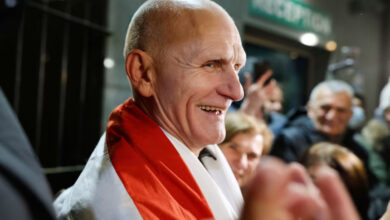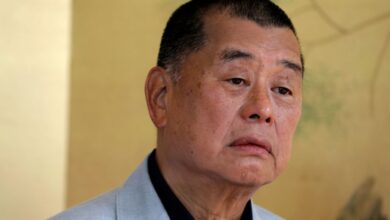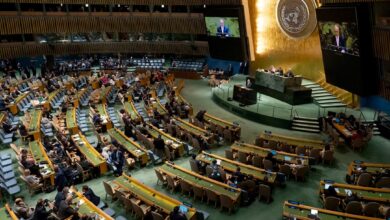Hardly a day passes without hearing news about Muslim Brotherhood members being arrested for simply assembling in one of their homes or elsewhere. And hardly a week passes without hearing about the police beating and torturing some citizen–again, for the simple reason that he or she may have participated in a protest or reported some bit of news or published a picture.
Have people already forgotten how an engineer at El-Gezira School was severely beaten by police in front of his family until completely paralysed? So far, we haven’t heard of the officers involved receiving any punishment for the assault, even though the despicable crime was witnessed by a large crowd of people all of whom are ready to testify.
Then Taha Abdel Tawwab, a physiotherapist from Fayoum, was beaten by police and is now lying in a hospital bed for promoting would-be presidential candidate Mohamed ElBaradei. The police at first denied the incident, then later admitted it, saying Abdel Tawwab was a member of the "banned" Muslim Brotherhood.
It appears that the National Democratic Party (NDP) will soon officially announce that killing brotherhood members and trespassing on their property is legally permissible. But who gave policemen the right to humiliate Egyptians that neither belong to the NDP nor support it? I remember that, in the past, the motto of the police used to be: "The police serves the people."
In fact, it seems some members of the police believe it would be degrading for them to serve the people. Rather, as they see it, the people should serve the police. Indeed, if the police are to serve anyone, it should only be the NDP–and all other Egyptians should serve the police.
Police officers that think this way have effectively replaced the old motto with a new one: "The police, and the people, serve the country." A more realistic version of this, however, should read: "The police and the people serve the NDP and its government."
The notion of punishment for police officers found assaulting citizens seems to have been relegated to the past. That’s why today’s policemen know they can commit violations with impunity. Nowadays, people feel that a policeman can do absolutely anything to them, without anybody standing up to him.
I once advised some people to "boycott" police officers who were known to have commited such violations, in the belief that such an attitude would force them to change their behavior. I said, "If one of these police officers went to a butcher, and that butcher refused to sell him meat, what would the officer do?"
I was immediately informed that the officer would hang the butcher up like a slaughtered animal. I was surprised by the fear expressed by the person to whom I was speaking, especially since butchers–and their knives–are traditionally seen as frightening in themselves.
Fear is more dangerous than hunger. A hungry person takes risks, while a scared person is often paralyzed by his fear.
The interior ministry says it only uses the longstanding state of emergency against terrorists and drug dealers and not the political opposition. But in practice, it uses the emergency law to arrest is political opponents–especially brotherhood members–because they are the real opposition; other opposition forces don’t represent any kind of threat to the regime whatsoever.
When the government punishes political opponents, it does so stripped of all human sentiment. It doesn’t provide medical treatment for political prisoners. One such prisoner to be sentenced by military tribunal–and later acquitted in a civil court–is leading brotherhood member Khairat el-Shater, who suffers from several life-threatening ailments. The same applies to Islamist Abboud el-Zomor, who remains in prison despite the expiration of his jail term.
I was extremely happy to learn that several political activists–as well as ElBaradei–are planning to visit the physiotherapist in Fayoum to express solidarity. I hope this becomes a trend whenever someone is tortured or arrested, regardless of his or her political affiliations.
Expressing solidarity with detainees and those tortured at the hands of police can be an effective means of eliminating the phenomenon. Human beings have the right to freedom, which should only be restricted for legal reasons laid out by the constitution and universal legislation–and a person’s right to physical safety is not restricted by any law anywhere in the world.
How is it we are silent about these unjustified violations? Ultimately, our silence will only contribute to the proliferation of the phenomenon.
The problem is that such incidents generally take place inside prisons, detention centers and state security headquarters–places from which it is unlikely that any word of the incident will get out. The solution, I believe, is to hold the interior minister, along with the head of the department in which the violation takes place, responsible.
Incidents of torture are crimes against humanity that must be firmly dealt with. The spread of the phenomenon serves to humiliate every person possessing a modicum of dignity or self-respect. Such incidents also serve to harm the reputation of the regime itself.
At a certain point, the regime may feel its own safety and survival rest in the hands of the police. After all, Salah Nasr, head of Egypt’s General Intelligence Service under late president Gamal Abdel Nasser, almost succeeded in turning Nasser himself into little more than a toy in his hand.
Translated from the Arabic Edition.




